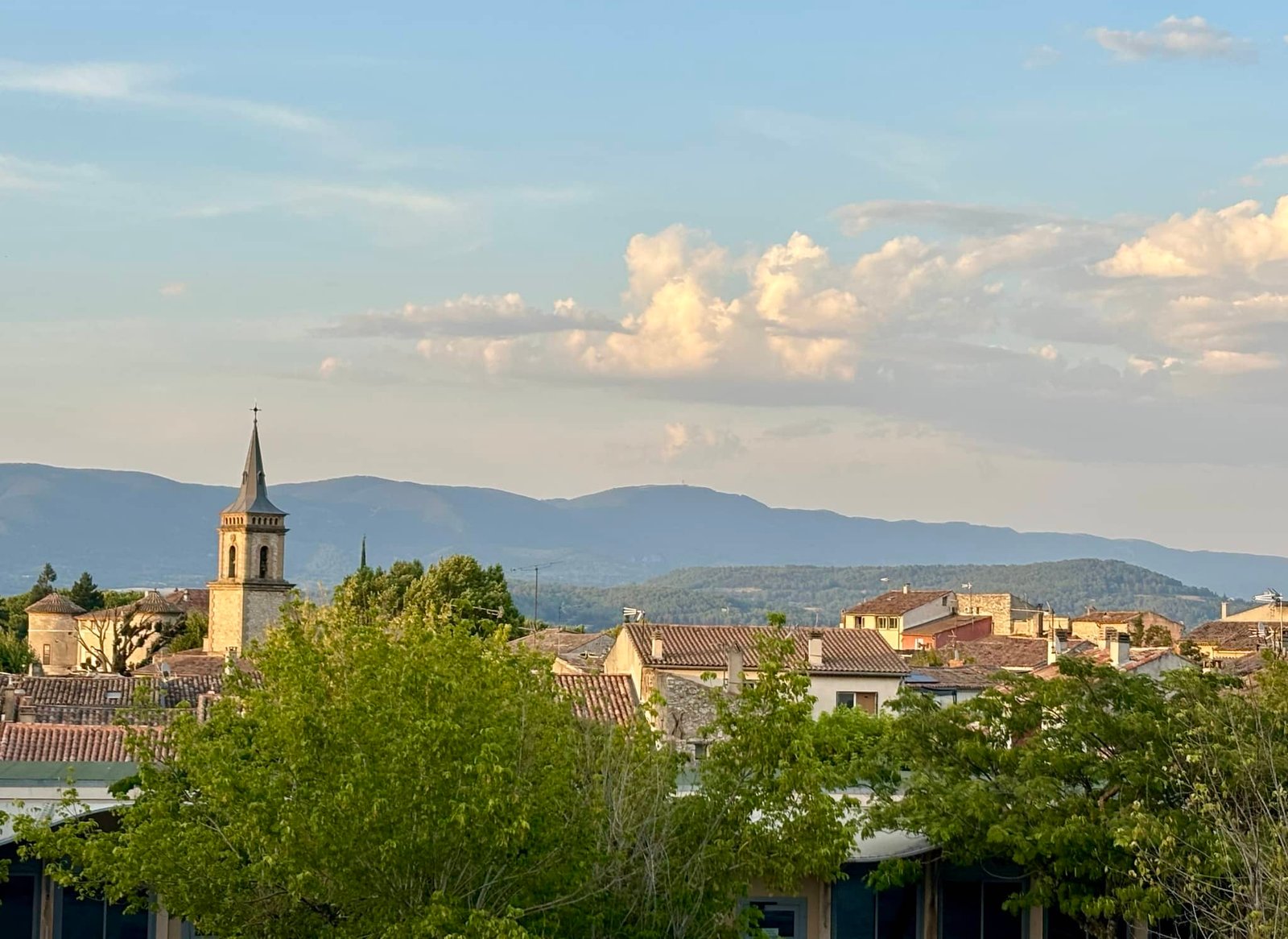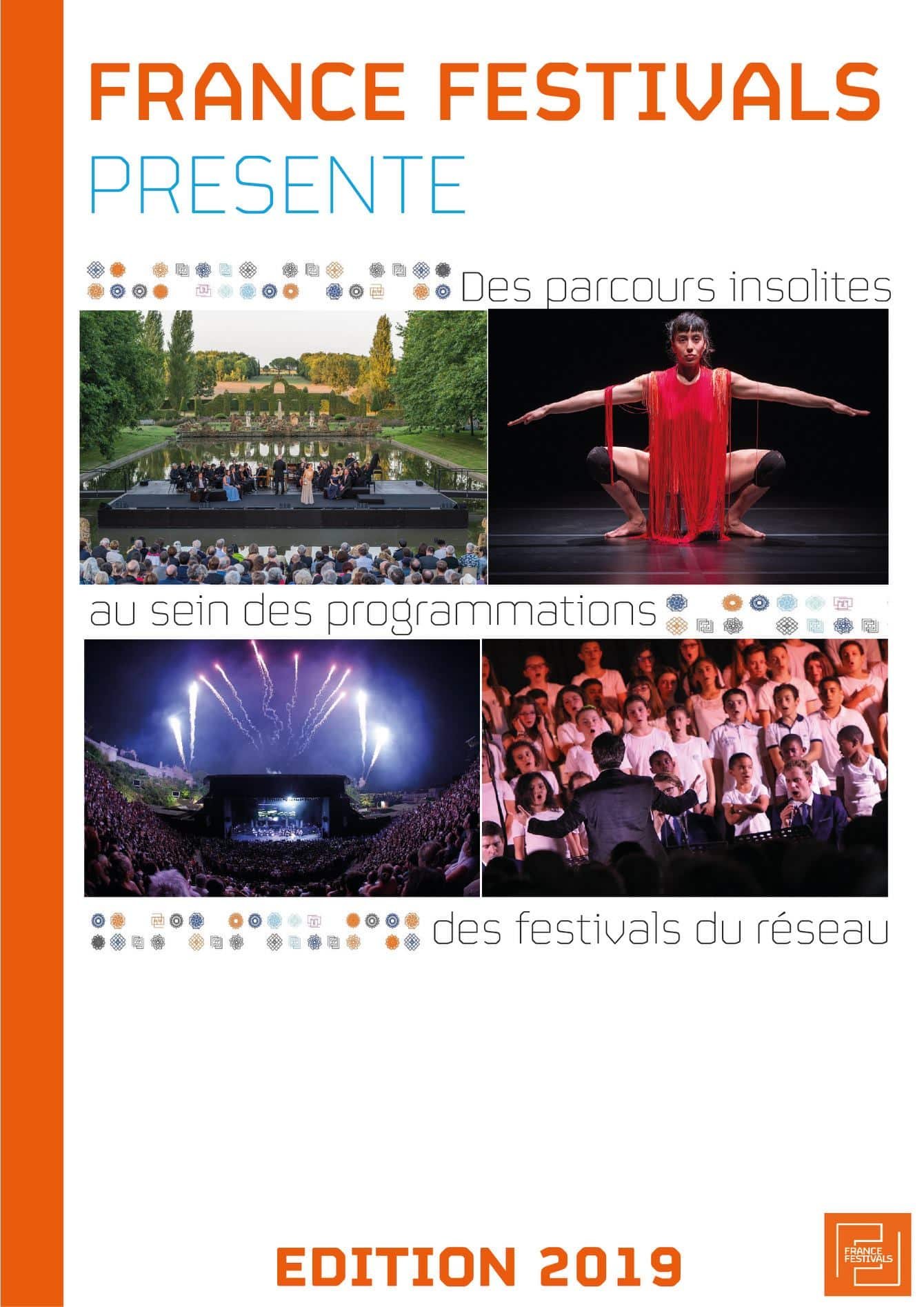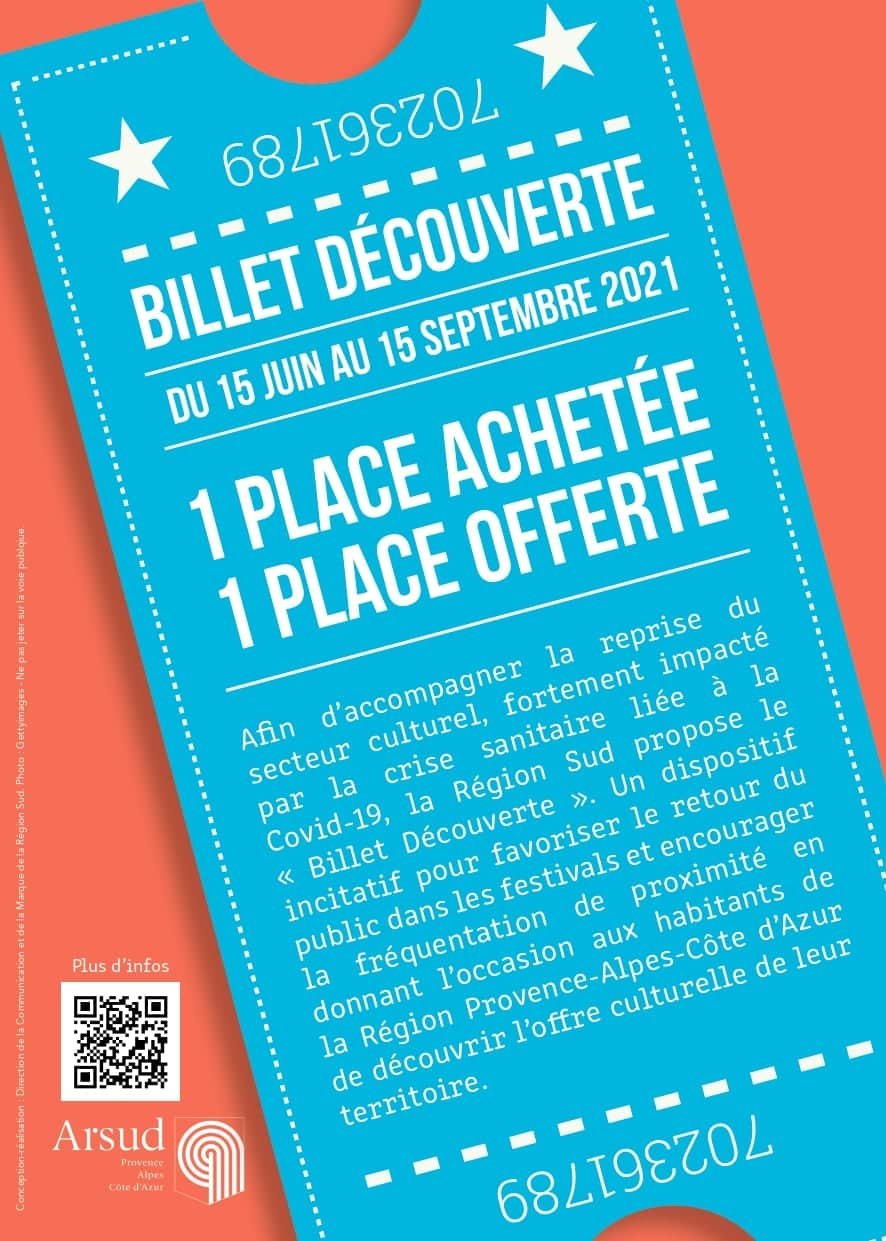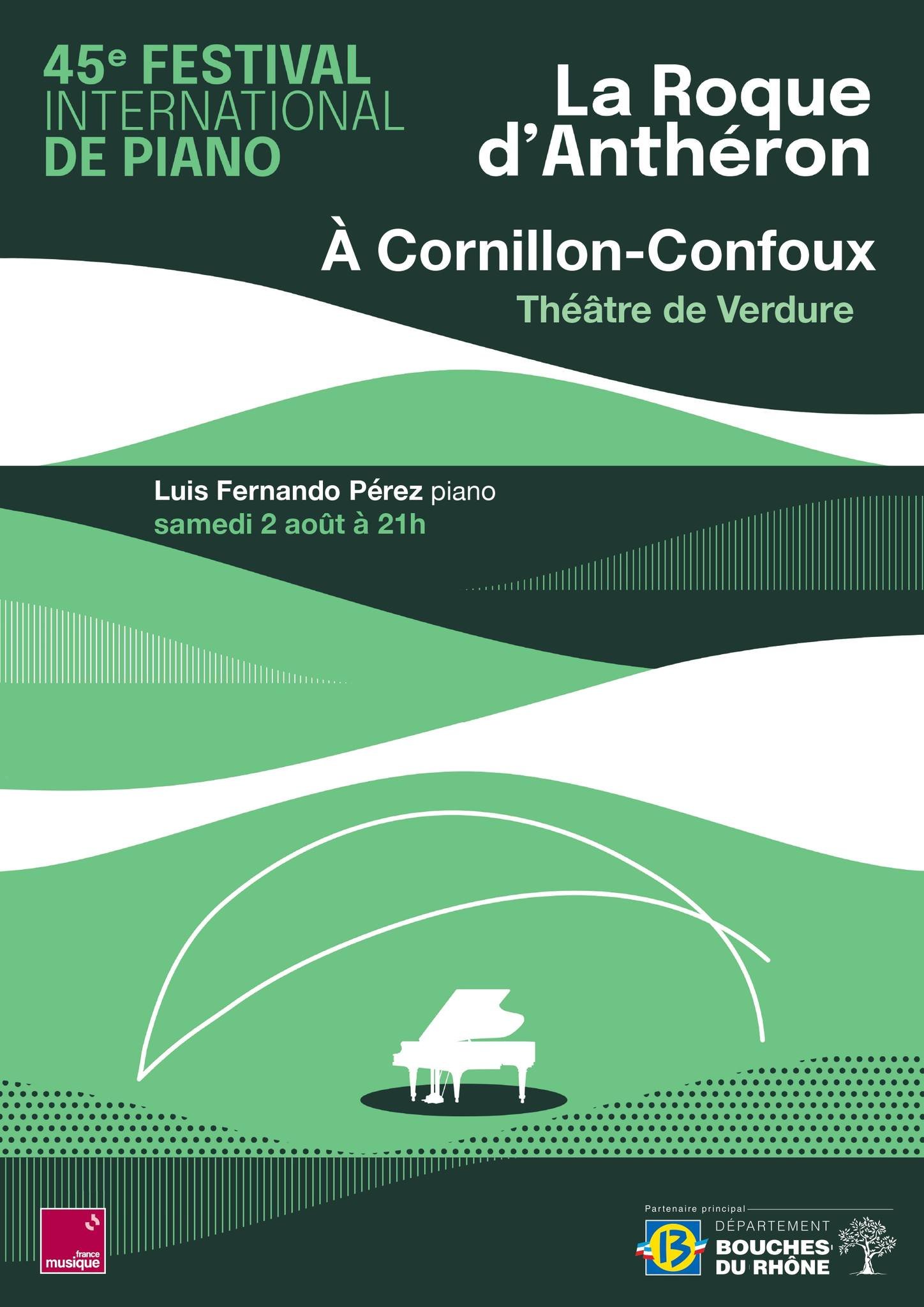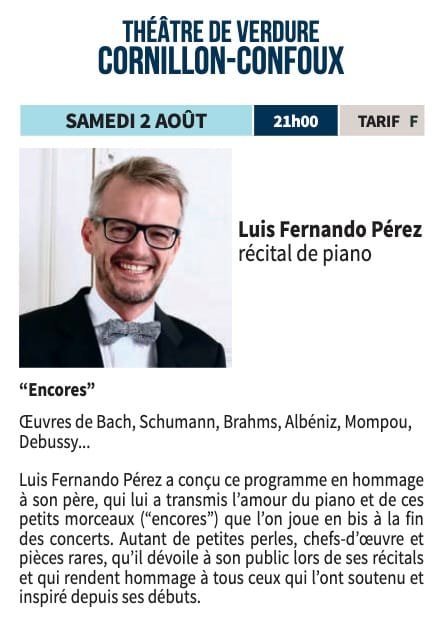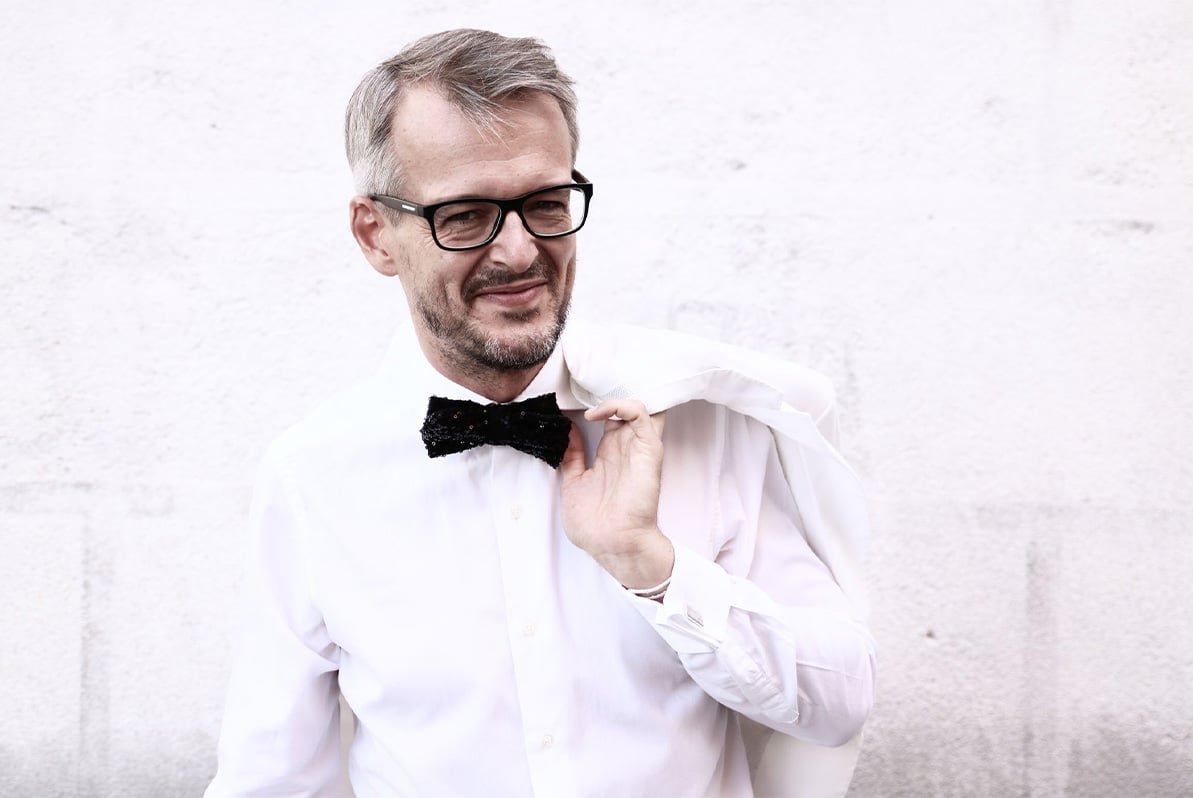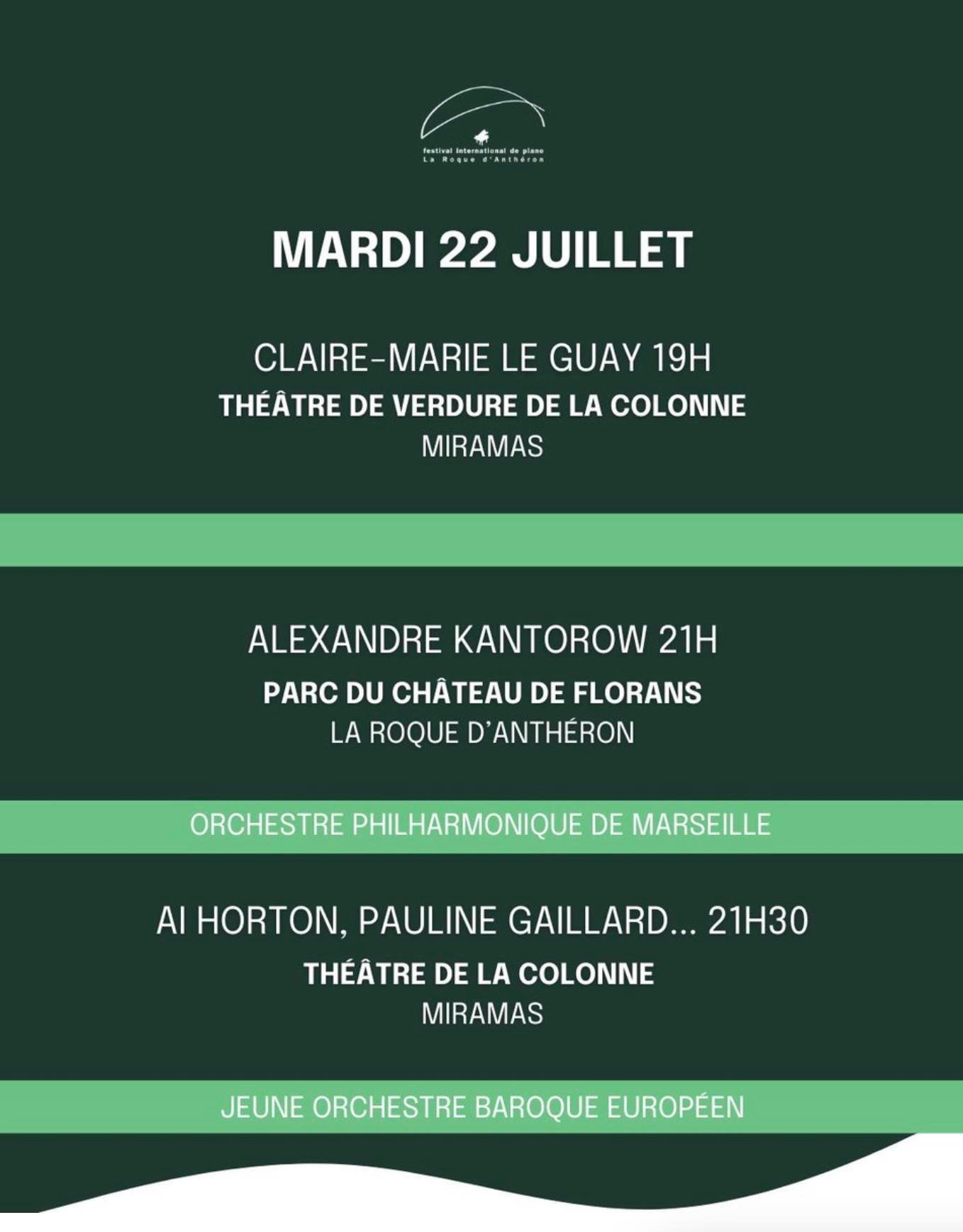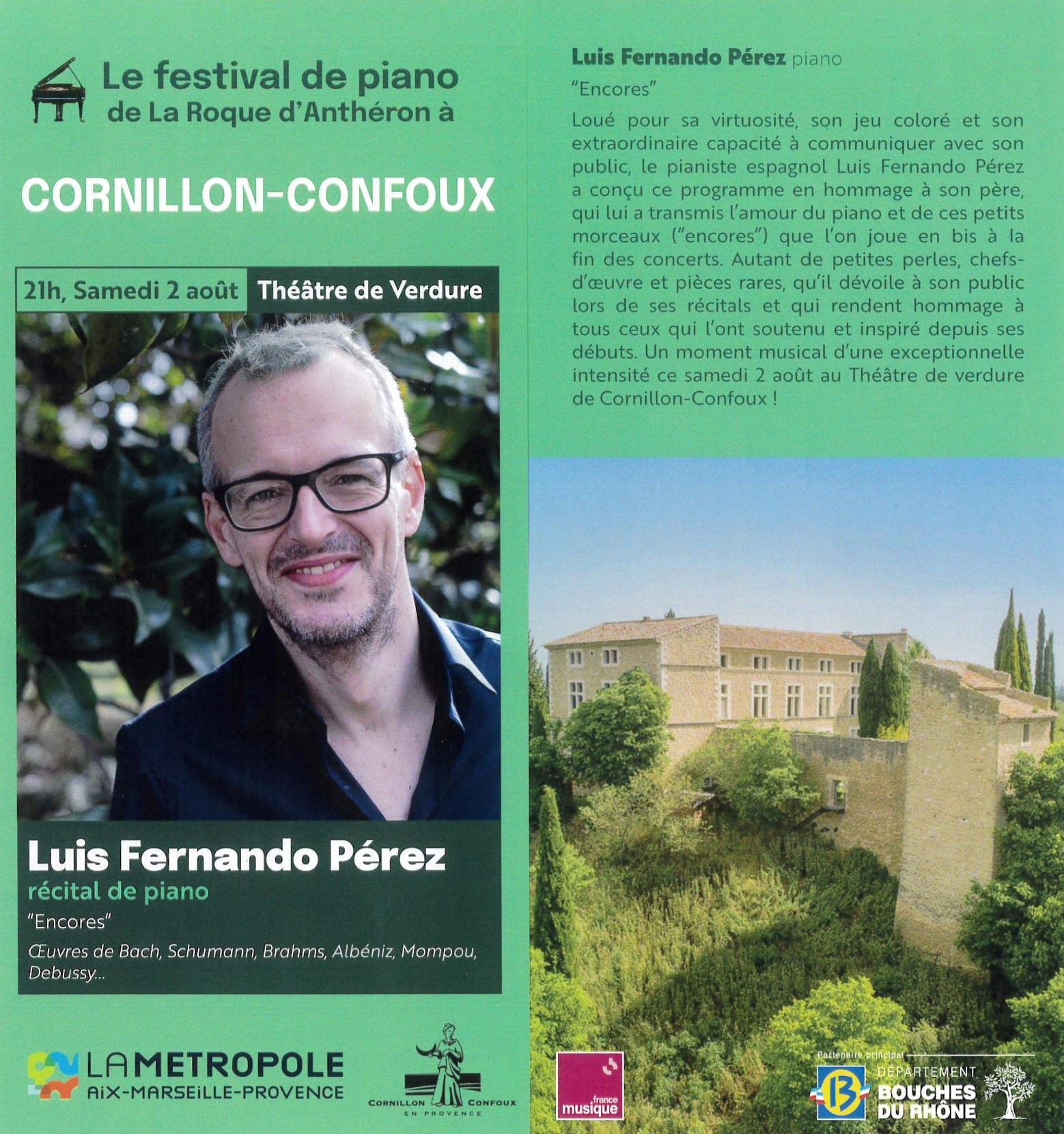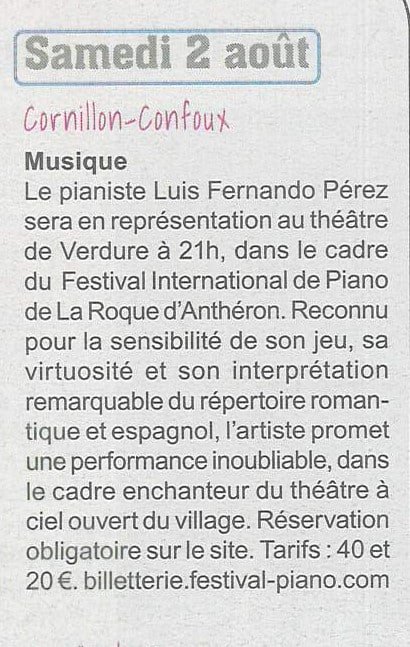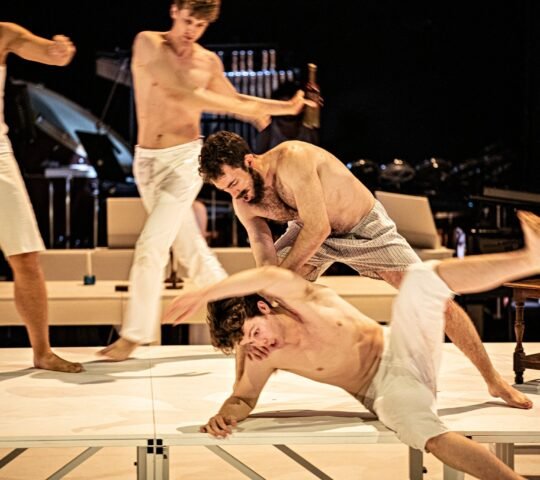Festival International de Piano de La Roque d’Anthéron – France 2026
Background & History
The International Piano Festival of La Roque d’Anthéron, widely recognized as a pinnacle of classical music events in Europe, has evolved into an indispensable cultural landmark since its inception in 1981. Established through the collaborative vision of Paul Onoratini, a dedicated local physician, entrepreneur, and former mayor of La Roque d’Anthéron, and the renowned artistic director René Martin, the festival was born from a desire to blend the serene natural beauty of Provence with the profound artistry of piano music. Onoratini, who had already initiated a smaller musical series called “Musique à Silvacane” in 1971 featuring seven annual concerts at the historic Silvacane Abbey, sought to expand this into a grander celebration. His meeting with Martin, facilitated by the Direction Régionale des Affaires Culturelles (DRAC), marked a turning point, as Martin’s ambition to create a dedicated piano festival in the Aix-en-Provence region perfectly aligned with Onoratini’s community-focused aspirations. The inaugural edition in 1981, held exclusively in the Parc du Château de Florans, attracted 9,000 spectators to just 12 concerts, showcasing legendary performers such as Martha Argerich, Krystian Zimerman, Youri Egorov, and Vlado Perlemuter, thus establishing an immediate reputation for excellence, intimacy, and acoustic innovation in an outdoor setting.
Over the decades, the festival has grown exponentially, reflecting its deep cultural significance as a harmonious fusion of French heritage, global musical traditions, and environmental stewardship. It serves as a vital platform for the piano’s multifaceted expressions, ranging from intimate solo recitals and chamber music to grand orchestral concertos, contemporary compositions, jazz improvisations, and even cross-genre explorations. This growth is evidenced by its impressive milestones: hosting over 700 pianists, presenting 2,509 concerts, and welcoming more than 2 million visitors across its history. Key developments include the introduction of the iconic acoustic conch shell in 1982, designed by acoustician Othon Schneider to deliver pristine, unamplified sound amidst nature; expansions in 1983 with dedicated rehearsal studios; tiered seating additions in 1984 (1,400 places), 1999 (1,850 places), 2002 (2,300 places), and 2010 (2,020 more comfortable seats); and a major conch upgrade in 2007 spanning 300 square meters with 122 acoustic panels. The festival’s resilience shone through the pandemic years, with 30,945 admissions in 2020 and a rebound to 43,530 in 2021, underscoring its enduring appeal. Today, under René Martin’s ongoing artistic direction—who also helms prestigious events like La Folle Journée in Nantes and international editions in Tokyo, Bilbao, Rio, and Warsaw—and President Jean-Louis Blanc (appointed in 2023 following the park’s transfer to a endowment fund for perpetuity), the event emphasizes inclusivity, sustainability, and economic impact, contributing nearly €4.5 million annually to the Aix-Marseille metropolitan area through local business patronage and tourism.
The Parc du Château de Florans, the festival’s heart, boasts a rich historical tapestry that enhances its allure. Constructed between 1598 and 1667 under the Forbin family—beginning with the “small Château” and expanding to the “large Château” by Annibal de Forbin—the estate features a chapel and landscaped park commissioned by his widow, Camille de Grimaldi d’Antibes, in memory of his untimely death in a duel. Ownership transitioned through sales in 1818 to the Cordoue family, a marriage in the 19th century renaming it Château de Florans, and a bequest in 1937 to the Archbishopric of Aix-en-Provence. In 1948, Paul Onoratini leased and renovated it into a medical center, purchasing it in 1957 and transforming it into the Clinique du Château de Florans, which continues to operate today. The park’s botanical diversity, including 320 monumental 150-year-old plane trees forming grand allées, Japanese laurels, aralias, yews, holly, lindens, hazelnuts, broad-leaved spindles, giant sequoias (with a third row planted in the early 2000s), and a serpentine canal for irrigation, creates an ecosystem teeming with wildlife such as jackdaws, blue tits, coal tits, redstarts, tree finches, magpies, jays, woodpeckers, orioles, barn owls, little owls, tawny owls, and even great horned owls at dusk. This fragile paradise, maintained through eco-grazing with local sheep and pesticide-free mosquito control via Qista traps, not only provides an acoustically perfect backdrop but also symbolizes the festival’s commitment to preserving Provençal heritage while fostering artistic innovation for future generations.
Enjoy Your Event Stress-Free with Euro Travelo
Planning a trip to attend a festival, concert, or business event in Europe can be overwhelming—tickets, travel, accommodation, and local logistics all take time and effort. Euro Travelo makes it simple by providing everything you need through one trusted company. You save time, avoid stress, and enjoy a seamless experience from start to finish.
Why Choose Euro Travelo:
- Secure and easy ticket booking for concerts, festivals, theaters, and business events.
- Complete travel planning including flights, trains, and local transportation.
- Accommodation arrangements near event venues, tailored to your needs.
- Convenient local transfers, from airport pickups to private shuttles.
- On-site concierge support to help you navigate venues and schedules.
- Custom itineraries and experience packages combining multiple events, tours, and activities.
- Secure payment process, making it safe and convenient to book all services online.
- Flexibility: even if you need only one service, we can assist individually.
Event Highlights
The 2026 edition of the Festival International de Piano de La Roque d’Anthéron is set to captivate audiences with an even more expansive and immersive program, building on its 45-year legacy by integrating cutting-edge acoustic experiences, diverse musical genres, and interactive community elements that transform the Parc du Château de Florans into a living symphony of sound, nature, and culture, where every performance resonates with the whispers of Provence’s ancient landscapes and the echoes of global piano mastery.
- Main activities or performances: At the heart of the festival are the nightly grand recitals and orchestral spectacles, featuring soloists delving into profound interpretations of Bach’s Well-Tempered Clavier, Beethoven’s late sonatas, or Chopin’s nocturnes and etudes, often paired with symphonic collaborations like Tchaikovsky or Brahms concertos performed alongside renowned groups such as the Orchestre Philharmonique de Radio France or international ensembles; the schedule includes over 40 events, from dawn-to-dusk programming with morning masterclasses open to aspiring musicians, afternoon chamber sessions exploring lesser-known works by composers like Scriabin or Debussy in intimate abbey settings, to evening extravaganzas that might feature complete cycles such as Liszt’s Transcendental Études or thematic explorations of 20th-century innovators like Messiaen and Ligeti, all broadcast live on France Musique for worldwide access and preserved through Apple Music playlists that allow fans to relive the magic long after the final note fades.
- Special traditions or features: Upholding time-honored rituals, the festival continues its tradition of unamplified acoustics via the 2007-upgraded conch shell, a 300-square-meter marvel that channels pure sound waves through the park’s natural amphitheater, creating an ethereal listening environment under the Provençal stars that rivals indoor halls; educational traditions abound with pre-concert lectures dissecting musical histories and artist inspirations, volunteer-hosted receptions that blend local hospitality with global artistry, and social programs like “Cultures du Cœur” and “Ensembles en Provence” providing tailored evenings for underserved communities, complete with artist Q&As, work breakdowns, and inclusive discussions that emphasize music’s role in social cohesion; sustainability traditions are woven in, from zero-waste initiatives and local sourcing to eco-rituals like biodéchet composting and cigarette butt upcycling, ensuring the event’s environmental footprint remains minimal while honoring Provence’s natural heritage.
- Unique attractions for visitors: Visitors can indulge in exclusive attractions such as the newly introduced “Placette” space, opening three hours before concerts near the ticket office, serving as a vibrant hub with food trucks, a record store, bookstore, and festival boutique for pre-show mingling and merchandise; wander the park’s biodiverse trails to spot rare flora like Japanese aralias and wildlife including nocturnal owls and diurnal jays, or join pop-up rehearsal sessions where pianists refine their craft in open-air studios; digital uniques include the “Piano sous les platanes” film series, a collection of short documentaries released monthly that capture behind-the-scenes stories, artist interviews, and atmospheric glimpses of the festival; family-oriented zones offer interactive workshops on piano basics, loaned instruments for hands-on play, and Easy-to-Read (FALC) guides simplifying complex programs, while the Aix shuttle enhances accessibility, allowing seamless integration with broader Provençal explorations like abbey tours that connect medieval monastic music to contemporary piano innovations.
This year’s highlights also feature innovative crossovers, such as jazz-piano fusions inspired by regional folk melodies and contemporary commissions that reflect Provence’s evolving cultural narrative, making the festival not just a series of concerts but a holistic journey through time, sound, and community that leaves lasting impressions on all who attend.
Date & Duration
- Primary Dates: July 18 – August 16, 2026, following the festival’s traditional mid-July to mid-August schedule, as confirmed by historical patterns and preliminary announcements for the 46th edition, with the opening night typically featuring a gala recital and the closing with an orchestral flourish.
- Daily Programming: Concerts and events occur most evenings (typically 8:30 PM start) with afternoon matinées on select days (around 3:00 PM), allowing flexibility for day trips to nearby Provençal sites like lavender fields or historic Aix markets, and including occasional mid-morning masterclasses for deeper engagement.
- Special Event Days: Expect themed weekends, such as youth ensemble showcases mid-festival (e.g., late July) dedicated to emerging talents, orchestral finales in the last week (early August) with international conductors, and potential pop-up daytime sessions at secondary venues like Silvacane Abbey for chamber music intimates.
- Duration: 30 days total, providing an immersive month-long experience that aligns with Provence’s summer peak, accommodating international travelers and local repeat visitors, with over 40 performances ensuring varied pacing from intense daily immersion to restful exploration days.
- Calendar Notes: Exact program release expected in spring 2026 via the website; subscribe to the newsletter for updates and alerts on sold-out events; festival gates open 1.5 hours pre-event for picnics and explorations, with extended hours on weekends for family activities.
- Time Zone and Scheduling: All times in CEST (Central European Summer Time); early-bird announcements in February 2026; flexible pass options for non-consecutive days to suit custom itineraries.
- Historical Context: Dates have varied slightly (e.g., 2025: July 19–Aug 17), but 2026 aligns with lunar phases for optimal stargazing during outdoor evenings; check for adjustments due to weather or global events.
Venue / Location
- Primary Venue: Parc du Château de Florans, the festival’s flagship outdoor site in La Roque-d’Anthéron, featuring a natural amphitheater with the iconic conch shell stage amid 320 plane trees and sequoias, designed for 2,020 seated attendees in a acoustically pristine, unamplified setting.
- Secondary Venues: Cloître de l’Abbaye de Silvacane (10km away) for chamber music in a 12th-century Cistercian setting with stone arches and serene cloisters; select Aix-en-Provence halls like the Conservatoire de Musique for urban extensions with indoor acoustics; occasional pop-ups in Lourmarin or Manosque for decentralized outreach.
- Notable Areas Within Venue: Central clairière (auditorium clearing) for main stage and tiered seating; eco-pastured prairies for picnics with sheep grazing views; shaded bosquets for relaxation and birdwatching; “Placette” near ticket office with food trucks, boutiques, and pre-concert lounges.
- City and Region: La Roque-d’Anthéron village in Bouches-du-Rhône, Provence-Alpes-Côte d’Azur; Luberon foothills along Durance River, known for unspoiled landscapes, lavender routes, and proximity to Aix (40km) and Avignon (50km) for extended regional tours.
- Google Maps Address: Parc du Château de Florans, 13610 La Roque-d’Anthéron, France (43.7275° N, 5.2400° E); accessible via RD23 for entry and parking, with clear signage from A51 highway.
- Additional Site Features: Biodiversity hotspots with marked birdwatching trails and plant identification plaques; accessibility ramps, electric shuttles, and induction loops throughout; year-round closure to public except festival for preservation, with guided tours available during events.
- Venue Capacity and Logistics: Up to 2,020 seats in the main park, expandable for standing; secondary sites hold 200-500; all venues equipped for weather contingencies with partial coverings; free Wi-Fi in key areas for app-based navigation.
- Nearby Attractions: Within 5km: Village streets for strolling, Durance River walks; 10km: Silvacane Abbey guided tours (daily July-Aug); integrate with Luberon tourism for hiking or wine routes.
Ticket Information
- How tickets are sold: Online via festival-piano.com ticket office (English interface, e-tickets since 2020 with QR code entry); phone reservations at +33 4 42 50 51 15 (Mon-Fri 9am-6pm, with hold options); on-site at park counter during events (cash/card accepted, but lines may form); group/lottery via email to billetterie@festival-piano.com for high-demand shows.
- Whether admission is free or paid: Paid for main concerts to support artist fees and production; free for select “Cultures du Cœur” evenings, open rehearsals, youth programs, and “Ensemble en Provence” sessions to promote inclusivity and cultural equity.
- Ticket pricing in USD only: Minimum $25 USD (student matinées or youth under 26); maximum $150 USD (premium orchestra seats for gala evenings); multi-day passes $100–$400 USD (3-10 events, with 10% savings); shuttle add-ons $5 USD; companion tickets free for accessibility needs.
- Any special seating or VIP options: PMR/PSH reserved seats with free companions (proof required); VIP ($75–$200 USD add-on) includes front-row access, exclusive artist meet-and-greets, air-conditioned lounges with refreshments, and priority fast-track entry via bracelets.
- Booking Tips: Advance purchase recommended (sales open March 2026, sell-outs common for stars like Argerich); refunds per general conditions of sale (available on website); digital tickets for contactless entry; print-at-home or mobile options for international travelers.
- Group and Accessibility: Discounts for groups of 10+ (15% off, contact groups@festival-piano.com); tailored accessibility bookings via accessibilite@festival-piano.com, including audio descriptions or sign language for select events; family bundles for 2 adults + 2 kids at $80 USD base.
- Additional Policies: Age restrictions (all welcome, but under-12s free with adult); no re-entry without re-scan; resale prohibited to prevent scalping; loyalty program for returning visitors with 5% off subsequent years.
- Payment Methods: Credit cards (Visa/Mastercard), PayPal online; cash/EUROS on-site; no crypto; currency conversion at 1 EUR ≈ 1.1 USD; international fees may apply.
Contact Information
- Email: info@festival-piano.com (general inquiries, bookings, program questions); accessibilite@festival-piano.com (disability support, accommodations, companion tickets); pr@festival-piano.com (press/media, interviews, partnership proposals).
- Phone: +33 4 42 50 51 15 (English/French support, Mon-Fri 9am-6pm CET; extended hours during festival with on-site mobile lines for urgent issues).
- Website: https://www.festival-piano.com (full programs, archives, e-tickets; English toggle; subpages like /billetterie/ for sales and /accessibilite/ for inclusivity details).
- Social Media: @festivalpiano (Instagram for visual highlights, stories, 15k+ followers); @LaRoquePiano (Facebook for community updates, live chats); @FestivalPiano (Twitter/X for real-time news, artist announcements); YouTube (concert archives, documentaries); LinkedIn (professional networking, recruitment).
- Key Staff: René Martin (Artistic Director, curates lineup); Jean-Louis Blanc (President, oversees operations); Marie-Claude Alcaraz (Vice-President, family legacy and admin); Bernard Onoratini (Honorary, historical advisor).
- Press/Volunteers: pr@festival-piano.com for press kits, credentials, high-res photos; recrutement@festival-piano.com for 200+ volunteer roles (apply Sept 2025, positions in hospitality, tech, logistics; training provided, perks include free tickets).
- Note: 24–48 hour responses standard; newsletter signup at site footer for exclusive previews; multilingual support (English, French, limited Spanish/German); emergency line during events: +33 4 42 50 51 16; privacy policy under /credits/.
- Additional Contacts: billetterie@festival-piano.com (ticketing specifics); benevoles@festival-piano.com (volunteer FAQs); partners@festival-piano.com (sponsorships, COFEES collaborations).
- Office Address: Festival de Piano, Clinique du Château de Florans, 13610 La Roque-d’Anthéron, France; mail inquiries to this for physical correspondence.
Cultural Experience
Diving into the cultural experience at the Festival International de Piano de La Roque d’Anthéron is like embarking on a multifaceted journey through the soul of Provence, where the resonant tones of classical piano intertwine with centuries-old French traditions, evoking a profound sense of connection to the region’s artistic legacy, natural splendor, and communal spirit that transforms each visitor from a mere spectator into an active participant in a living cultural tapestry.
- Traditions blend seamlessly with the festival’s ethos, including the cherished pre-concert aperitifs held under the canopy of ancient sequoia groves and plane tree allées, where guests savor local vintages while engaging in lively discussions about the evening’s musical selections, paying homage to the event’s nearly half-century history of enchanting open-air performances that capture the essence of Provençal summer nights filled with starlit symphonies and shared appreciation for artistic excellence; annual tributes to iconic French composers such as Ravel or Poulenc through dedicated thematic nights not only celebrate national musical heritage but also encourage cross-cultural exchanges by incorporating global influences, fostering a dialogue that bridges historical reverence with contemporary innovation.
- Music pulsates as the core cultural element, offering a vast repertoire that spans from intricate Baroque fugues by Bach and Handel to the emotive depths of Classical sonatas by Mozart and Haydn, the passionate swells of Romantic works by Schumann and Liszt, the experimental edges of modernist pieces by Stravinsky and Schoenberg, and even vibrant jazz crossovers infused with Provençal folk rhythms, all delivered by an eclectic mix of international virtuosos and emerging local talents who collaborate in ensembles that highlight intergenerational mentorship and artistic evolution; special sessions often draw parallels to Provence’s literary and visual arts, such as programs inspired by the writings of Marcel Pagnol or the paintings of Cézanne, creating layered experiences that resonate with the region’s rich creative history.
- Costumes and attire embody a refined yet approachable elegance, with performers typically adorned in classic formal wear—tailored black tuxedos for men and flowing gowns in subtle hues for women—that stand in striking contrast to the park’s untamed greenery and wild flora, symbolizing the harmonious blend of human artistry and natural beauty; attendees, in turn, adopt a versatile style ranging from sophisticated summer ensembles like linen dresses, wide-brimmed hats, and silk scarves for women, or lightweight suits and espadrilles for men, to more casual interpretations that echo Provençal countryside chic, allowing for personal expression while maintaining an air of communal sophistication that mirrors the festival’s inclusive and relaxed atmosphere.
- Local customs are vividly brought to life through immersive activities, such as guided explorations of the nearby Silvacane Abbey where visitors uncover the links between medieval Cistercian Gregorian chants and modern piano compositions, fostering a deeper understanding of musical evolution; community-driven picnics in the eco-pastured prairies promote social bonding with eco-conscious guidelines that ban glass and metal for sustainability, encouraging shared meals that reflect Provence’s emphasis on fresh, seasonal fare and conviviality; furthermore, practices like the eco-grazing of sheep in the park’s meadows and pesticide-free environmental management underscore the region’s agrarian customs and commitment to preserving biodiversity, inviting participants to engage in mindful stewardship that aligns cultural enjoyment with ecological responsibility.
Moreover, the festival’s dedication to social initiatives, exemplified by “Ensemble en Provence” and partnerships with the Bouches-du-Rhône department, extends cultural access to diverse audiences through customized evenings featuring artist-led introductions, in-depth analyses of performed works, and interactive group dialogues, thereby reinforcing Provence’s values of inclusivity, community cohesion, and the transformative power of music in a landscape renowned for its lavender-scented fields, historic stone villages, and enduring artistic inspiration.
Food & Drinks
The food and drinks at the Festival International de Piano de La Roque d’Anthéron serve as a delectable extension of the musical feast, drawing deeply from Provence’s renowned gastronomic heritage with an array of fresh, seasonally inspired offerings that emphasize local sourcing, sustainable practices, and the joy of communal dining, turning intermissions and pre-concert gatherings into flavorful interludes that harmonize perfectly with the auditory delights of the performances.
- Must-try specialties encompass a wide spectrum of Provençal classics, such as savory ratatouille-stuffed puff pastries bursting with eggplant, zucchini, tomatoes, and herbs from nearby farms, olive tapenade slathered on artisanal baguettes with hints of garlic and anchovy for a briny kick, herb-marinated grilled vegetables like bell peppers and artichokes drizzled with extra-virgin olive oil pressed in the Luberon region, and indulgent sweet treats including lavender-honey infused sorbets that capture the essence of blooming fields, or traditional calissons d’Aix—diamond-shaped almond confections glazed with royal icing—sourced from local patisseries to provide a sweet counterpoint to the evening’s musical intensity, all crafted with short-circuit supply chains to support small producers and minimize carbon footprints.
- Dining spots abound both within the venue and in the surrounding village, highlighted by the innovative “Placette” area introduced in recent editions, which opens three hours before concerts and features a rotation of food trucks from beloved local “rocassiers” (restaurateurs) like Café du Midi serving hearty aioli salads with fresh seafood and garlic mayonnaise ($15–$25 USD), Susana’s Table offering vibrant organic vegetable platters layered with regional cheeses like creamy banon wrapped in chestnut leaves, Grain of Salt presenting light tapas-style bites such as pissaladière topped with caramelized onions and anchovies on flaky dough, The Jas specializing in opulent truffle-infused charcuterie boards with cured meats and aged comté, Mas de Jossyl delivering farm-to-table Provençal stews simmered with lamb, olives, and rosemary, and Le Bocage providing casual options like gourmet sandwiches filled with herbed goat cheese and sun-dried tomatoes, all prioritizing seasonal, hyper-local ingredients to enhance authenticity and sustainability.
- Festival fare at the park’s dedicated stands focuses on eco-friendly, portable meals designed for picnicking, including refreshing couscous salads tossed with chickpeas, cucumbers, mint, and feta ($10–$20 USD per serving), fruit coulis desserts made from ripe peaches and berries pureed with a touch of verbena, vegetarian Provençal tarts layered with tomatoes, basil, and mozzarella in a buttery crust, and gluten-free alternatives like quinoa bowls with roasted vegetables and tahini dressing, all complemented by on-site water fountains that encourage the use of reusable bottles to eliminate single-use plastics, while a thoughtful policy ensures that any unsold yet consumable food is redistributed to festival staff or nearby charitable organizations, aligning with the event’s zero-waste commitment.
- Drinks showcase the region’s viticultural prowess, with chilled rosé wines from Luberon appellations poured by the glass ($8–$12 USD) offering crisp notes of strawberry and citrus that pair ideally with warm summer evenings, non-alcoholic herbal infusions steeped from wild-picked thyme, rosemary, sage, and fennel for a refreshing, aromatic alternative, craft beers brewed in Provençal microbreweries with hints of local honey or citrus zest, and effervescent sparkling waters infused with elderflower or lemon verbena, all served in sustainable cans or cups to adhere to the strict no-glass bottle regulations that prioritize safety, environmental protection, and the seamless flow of the festival experience.
This culinary dimension not only nourishes the body but also enriches the soul, as the flavors of Provence—rooted in centuries of Mediterranean culinary traditions—create a sensory bridge between the land’s bounty and the transcendent power of music, inviting visitors to savor every moment in a holistic celebration of culture and community.
Getting There
Reaching the Festival International de Piano de La Roque d’Anthéron is an adventure in itself, designed with a focus on eco-mobility and convenience to ensure that visitors can effortlessly immerse themselves in the event while respecting France’s rigorous security standards under the Vigipirate “urgence attentat” protocol, which mandates thorough entry checks and prohibitions on hazardous items, turning the journey into a prelude to the harmonious experiences awaiting in Provence’s heart.
- Nearest airports: The most convenient gateway is Marseille Provence Airport (MRS), situated about 50km south with a straightforward 45-minute drive along the A51 highway, serving as a major international hub with direct flights from Europe, North America, and beyond, complete with car rental agencies like Hertz and Avis for seamless onward travel; alternatively, Avignon-Provence Airport (AVN) lies 60km northwest, offering a scenic 1-hour route through rolling vineyards and lavender fields, ideal for regional European connections; for those arriving from farther afield, Lyon Saint-Exupéry Airport (LYS) at 280km north provides extensive global options, followed by a 3-hour high-speed TGV train ride to Aix-en-Provence TGV station, where taxis or shuttles can bridge the final leg amid picturesque Provençal countryside.
- Public transport: Leverage the user-friendly Zou! app or website for tailored itineraries, including the reliable Line 110 bus from Aix-en-Provence’s central station (approximately 1 hour, $5 USD fare) with departures every 30-60 minutes during peak times, passing through charming villages en route; high-speed TGV services connect to Aix-en-Provence TGV (40km/45min from the venue) or Avignon TGV (57km/1hr), with affordable regional TER trains or buses completing the journey, offering air-conditioned comfort and scenic views of the Durance River valley; for intra-regional travel, consider the Provence-Alpes-Côte d’Azur rail pass for unlimited rides, enhancing flexibility for multi-day festival attendance.
- Shuttle services: The festival’s eco-conscious navette operates from Aix-en-Provence’s Hôtel Renaissance at 320 Avenue Mozart, departing 1 hour and 15 minutes prior to evening concerts for a direct drop-off at Parc du Château de Florans ($5 USD round-trip, bookable via ticket office), promoting reduced emissions with electric or low-emission vehicles; inside the park, dedicated electric shuttles cater to persons with reduced mobility (PMR), running nonstop from the reserved parking area to the stage starting 1.5 hours before shows and continuing post-event, ensuring inclusive access for all attendees regardless of physical ability.
- Parking: A spacious, free guarded parking facility holds over 500 vehicles and is easily reachable via the RD23 north entrance, with priority reserved spots for PMR/PSH holders equipped with disability credentials, complete with drop-off zones to minimize walking distances; bicycle parking racks are plentiful to encourage green commuting, and real-time traffic monitoring through Radio VINCI Autoroutes provides updates on road conditions, helping avoid delays during peak festival hours while aligning with the event’s sustainability goals.
- Other: Embrace carpooling via the complimentary Covoiturage Simple platform, which matches drivers and riders without registration for cost-effective and eco-friendly ridesharing, often including festival-specific groups for shared experiences; dedicated drop-off points at the PMR parking entrance facilitate quick access for taxis or rideshares like Uber, available in nearby Aix; guide dogs are warmly accommodated throughout, and all pathways adhere to security protocols with clear signage reminding visitors of prohibited items like large bags or projectiles, ensuring a secure yet welcoming arrival that sets the tone for the cultural immersion ahead.
This array of transportation options not only prioritizes environmental responsibility through promoted public and shared mobility but also enhances the overall festival experience by allowing visitors to appreciate Provence’s stunning vistas en route, making the act of getting there an integral part of the journey’s enchantment.
Accommodation Options
Accommodation options for the Festival International de Piano de La Roque d’Anthéron span a delightful spectrum from quaint village retreats to opulent regional estates, many forging partnerships with the event to offer exclusive perks like discounted rates, artist rehearsal access, and shuttle integrations, ensuring that every stay becomes an extension of the festival’s harmonious blend of culture, comfort, and Provençal charm.
- In La Roque d’Anthéron: Embrace the intimate allure of Le Mas de Jossyl, a boutique bed-and-breakfast nestled amid olive groves with elegantly appointed rooms boasting private poolsides and panoramic Luberon hill views ($120–$200 USD/night), complete with homemade Provençal breakfasts featuring fresh croissants, jams from local fruits, and herbal teas, ideal for unwinding after concerts; The Bocage stands out as a cozy guesthouse in the village’s historic core ($90–$150 USD), offering charming en-suite rooms with antique furnishings, shared kitchens stocked with regional produce for self-catering, and complimentary bike rentals to explore nearby trails; for a unique on-site experience, the Clinique du Château de Florans provides adapted historic suites within the château grounds ($150–$250 USD), merging medical heritage with luxurious amenities like spa treatments and direct park access, perfect for those seeking immersion without travel hassles.
- Surrounding areas: In Aix-en-Provence (40km away, serving as the shuttle hub), the Hôtel Renaissance exudes upscale sophistication with spacious rooms overlooking manicured gardens, full spa facilities including massages and saunas, and on-site dining with Provençal fusion cuisine ($150–$300 USD), conveniently located for urban excursions to museums and markets; Lourmarin (20km) enchants with Le Mas de la Baou, a rustic stone estate amid vineyards offering suites with private terraces, infinity pools, and organic breakfasts sourced from its gardens ($130–$220 USD), evoking the timeless romance of Provençal countryside living; Cadenet (15km) features Domaine de la Royère as an eco-lodge with sustainable wooden cabins, organic vegetable gardens for guest harvesting, and guided hiking trails through the Luberon ($100–$180 USD), emphasizing green practices that resonate with the festival’s ethos.
- Broader Provence: Venture to Saint-Rémy-de-Provence (50km) for Hôtel de l’Image, a luxurious haven inspired by Van Gogh’s landscapes with art-infused rooms, outdoor pools surrounded by olive trees, and gourmet restaurants serving dishes like bouillabaisse and ratatouille ($200–$350 USD), ideal for combining festival visits with explorations of ancient Roman ruins; Marseille (60km) offers the InterContinental as a refined urban escape with harbor-view suites, rooftop bars pouring local pastis, and proximity to vibrant seafood markets ($180–$280 USD), providing a cosmopolitan contrast to the rural festival setting; for budget-conscious travelers, the Aix Youth Hostel delivers affordable dorms and private rooms with communal lounges, kitchen facilities, and organized group outings ($50–$80 USD), fostering a youthful, social atmosphere among fellow music enthusiasts.
- Special features: Numerous properties collaborate with the Destination Luberon tourism board for seamless bookings, often including festival-exclusive perks such as quiet rehearsal spaces equipped with pianos for visiting artists, complimentary shuttles to the venue, or themed packages with wine tastings and abbey tours; glamping options in park-adjacent meadows offer tented accommodations with modern amenities like en-suite bathrooms and star-gazing decks ($80–$120 USD/night), blending adventure with luxury; extended stays in nearby villages like Charleval, Cucuron, Grambois, or Pertuis feature family-friendly farm stays and B&Bs ($100–$200 USD) with activities such as olive oil tastings, horseback riding, and eco-certifications that support the festival’s sustainability initiatives, ensuring options for every preference and budget.
These accommodations not only provide restful havens but also deepen the cultural immersion, allowing guests to linger in Provence’s idyllic settings, from sun-drenched vineyards to historic châteaux, where the festival’s melodies continue to echo long into the night.
Maps
Contact
Video
FAQ's
What are the security measures in place at the festival?
The Festival operates under France's Vigipirate "urgence attentat" protocol, extended through summer-autumn 2025 and likely into 2026, emphasizing heightened vigilance with mandatory bag inspections at all entrances to prohibit items like knives, cutters, scissors, aerosols, lasers, large backpacks over 10–25L, suitcases, scooters, metal cutlery, glass bottles, gourdes over 50cl (caps removed), umbrellas, or any potential projectiles; cooperation is requested for smooth access, with on-site teams and signage guiding visitors, ensuring a safe environment while maintaining the event's welcoming atmosphere—visitors are encouraged to arrive early, use clear bags, and report suspicious activity to staff for collective security.
Is the festival accessible for people with disabilities?
Absolutely, with comprehensive features including reserved PMR/PSH seating at every venue, free companion tickets for those with official "need for accompaniment" documentation (proof required upon booking via accessibilite@festival-piano.com or +33 4 42 50 51 15), dedicated parking inside the park via RD23 northeast entrance for all disability types, electric shuttles running continuously from parking to the stage (starting 1.5 hours pre-concert), an air-conditioned reception area with refrigerators for medications, earplugs, and loaner wheelchairs, induction loops for hearing aids at ticket offices and bars, lowered counters and priority queues with convenience bracelets, accessible toilets throughout the park, guide dog acceptance, and a volunteer team providing on-call assistance—pre-festival consultations optimize experiences, aligning with the festival's inclusive ethos.
Are there family or student discounts available?
Yes, the festival promotes accessibility with targeted reductions, such as minimum $25 USD tickets for matinées geared toward students under 26, youth groups, or families; free entry for children under 12 accompanying paid adults (with age proof); educational programs for schools including free or low-cost workshops on piano history and interactive sessions; multi-concert family passes starting at $100 USD offering bundled savings; and special rates through "Cultures du Cœur" for low-income families, ensuring broad participation—book early via the website or phone, with options for group reservations to accommodate larger families or student outings.
What's the weather like during the festival, and how should I prepare?
Provence summers are typically warm and sunny, with temperatures ranging from 75–85°F (24–29°C) during the day and cooling to 60–70°F (15–21°C) at night, though occasional mistral winds can bring gusty conditions or brief showers; concerts proceed rain or shine with limited covered seating, so pack lightweight layers like breathable linens, hats, sunscreen, and light jackets for evenings, along with reusable water bottles (fountains available), comfortable walking shoes for park navigation, and eco-friendly picnic items (no glass or metal)—check forecasts via apps, and note that the park's tree canopy provides natural shade, enhancing comfort in this Mediterranean climate.
How does the festival support sustainability and eco-responsibility?
As a member of the COFEES collective since 2017, the festival implements robust initiatives like eco-shuttles and carpooling via Covoiturage Simple to reduce emissions, LED lighting and digital communications (e.g., e-tickets) for energy efficiency, waste management with bi-flux bins, biodéchet composting, cigarette butt recycling into urban furniture via Lemon Tri, and no single-use plastics with distributed gourdes; biodiversity preservation includes pesticide-free Qista mosquito traps, eco-grazing sheep in prairies for natural maintenance, and partnerships with local ESAT la Farigoule for upcycled materials (e.g., volunteer vests and stage wood repurposed for community use); responsible sourcing favors short-circuit catering and accommodations, while economic studies show €4.5 million in local impact—visitors are encouraged to participate by using public transport, recycling, and supporting green vendors for a truly sustainable cultural celebration.

